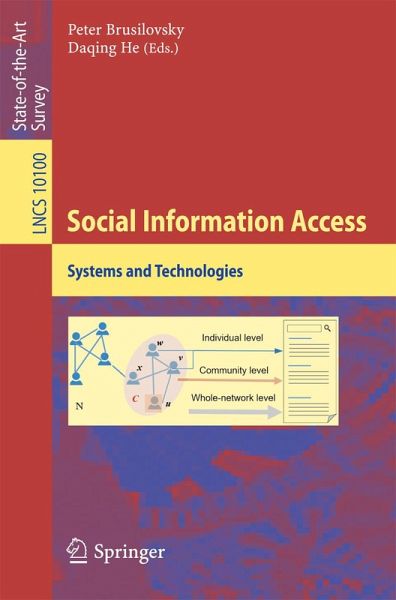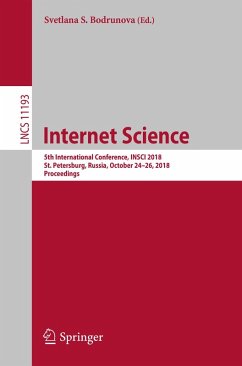
Social Information Access (eBook, PDF)
Systems and Technologies
Redaktion: Brusilovsky, Peter; He, Daqing
Versandkostenfrei!
Sofort per Download lieferbar
64,95 €
inkl. MwSt.
Weitere Ausgaben:

PAYBACK Punkte
32 °P sammeln!
Social information access is defined as a stream of research that explores methods for organizing the past interactions of users in a community in order to provide future users with better access to information. Social information access covers a wide range of different technologies and strategies that operate on a different scale, which can range from a small closed corpus site to the whole Web.The 16 chapters included in this book provide a broad overview of modern research on social information access. In order to provide a balanced coverage, these chapters are organized by the main types o...
Social information access is defined as a stream of research that explores methods for organizing the past interactions of users in a community in order to provide future users with better access to information. Social information access covers a wide range of different technologies and strategies that operate on a different scale, which can range from a small closed corpus site to the whole Web.
The 16 chapters included in this book provide a broad overview of modern research on social information access. In order to provide a balanced coverage, these chapters are organized by the main types of information access (i.e., social search, social navigation, and recommendation) and main sources of social information.
The 16 chapters included in this book provide a broad overview of modern research on social information access. In order to provide a balanced coverage, these chapters are organized by the main types of information access (i.e., social search, social navigation, and recommendation) and main sources of social information.
Dieser Download kann aus rechtlichen Gründen nur mit Rechnungsadresse in A, B, BG, CY, CZ, D, DK, EW, E, FIN, F, GR, HR, H, IRL, I, LT, L, LR, M, NL, PL, P, R, S, SLO, SK ausgeliefert werden.












